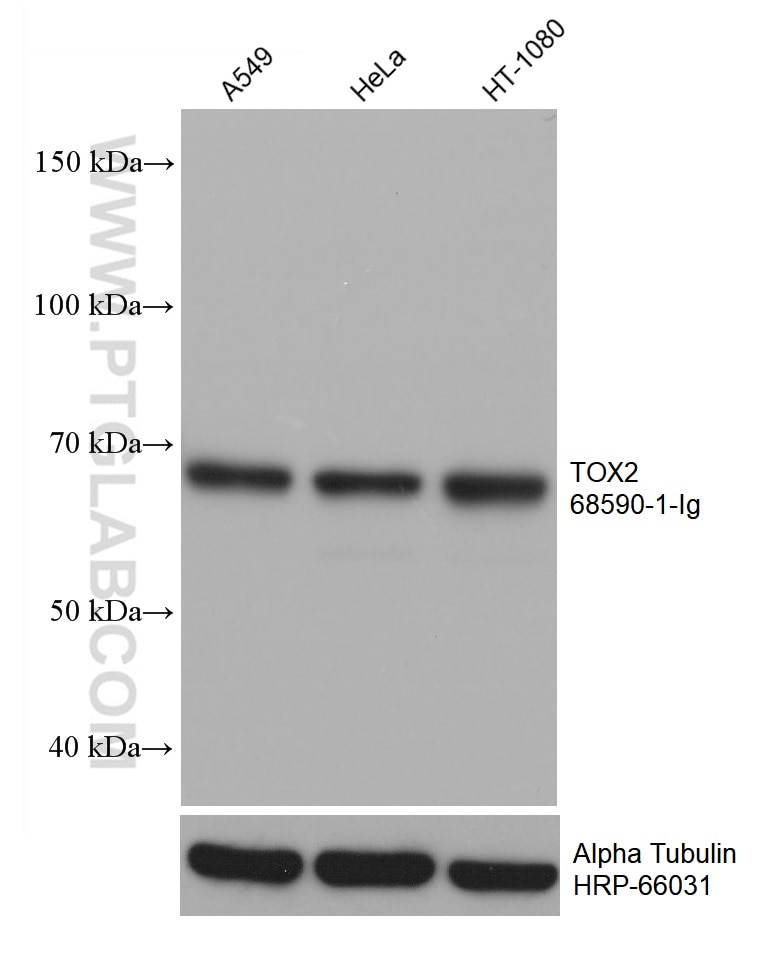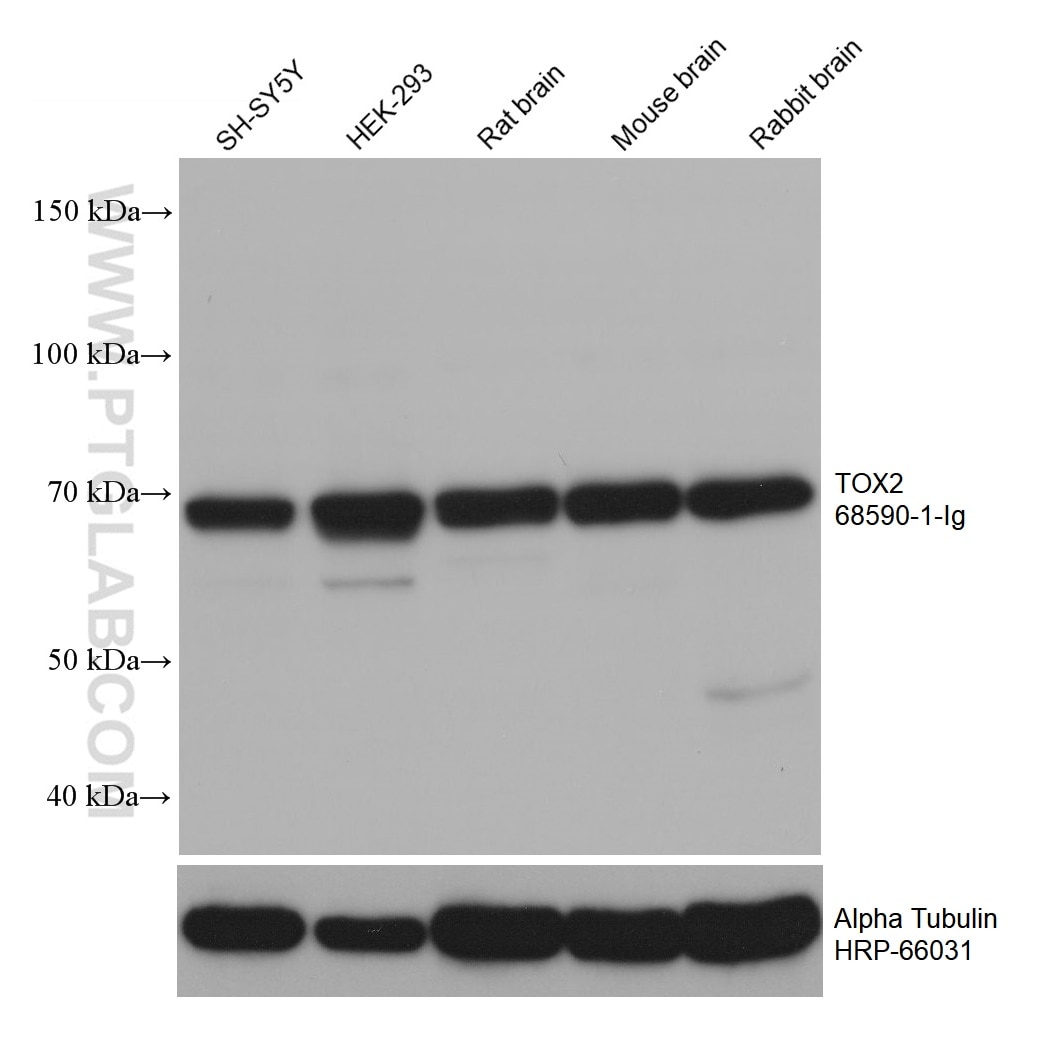Tested Applications
| Positive WB detected in | SH-SY5Y cells, A549 cells, HeLa cells, HT-1080 cells, HEK-293 cells, rat brain tissue, mouse brain tissue, rabbit brain tissue |
Recommended dilution
| Application | Dilution |
|---|---|
| Western Blot (WB) | WB : 1:2000-1:10000 |
| It is recommended that this reagent should be titrated in each testing system to obtain optimal results. | |
| Sample-dependent, Check data in validation data gallery. | |
Product Information
68590-1-Ig targets TOX2 in WB, ELISA applications and shows reactivity with human, mouse, rat, rabbit samples.
| Tested Reactivity | human, mouse, rat, rabbit |
| Host / Isotype | Mouse / IgG1 |
| Class | Monoclonal |
| Type | Antibody |
| Immunogen | TOX2 fusion protein Ag31563 Predict reactive species |
| Full Name | TOX high mobility group box family member 2 |
| Calculated Molecular Weight | 52KD |
| Observed Molecular Weight | 70 kDa |
| GenBank Accession Number | NM_001098797 |
| Gene Symbol | TOX2 |
| Gene ID (NCBI) | 84969 |
| RRID | AB_3085289 |
| Conjugate | Unconjugated |
| Form | Liquid |
| Purification Method | Protein G purification |
| UNIPROT ID | Q96NM4 |
| Storage Buffer | PBS with 0.02% sodium azide and 50% glycerol, pH 7.3. |
| Storage Conditions | Store at -20°C. Stable for one year after shipment. Aliquoting is unnecessary for -20oC storage. 20ul sizes contain 0.1% BSA. |
Background Information
TOX2 is a transcription factor belonging to the TOX (thymocyte selection-associated HMG box) family that shares a highly conserved high mobility group DNA-binding domain with the other TOX members. A previous study showed that TOX2 is preferentially expressed in human NK cells among various leukocyte populations and is required for in vitro and in vivo human NK cell differentiation from UCB-derived CD341 hematopoietic stem cells (HSCs) (PMID: 25352127).
Protocols
| Product Specific Protocols | |
|---|---|
| WB protocol for TOX2 antibody 68590-1-Ig | Download protocol |
| Standard Protocols | |
|---|---|
| Click here to view our Standard Protocols |





